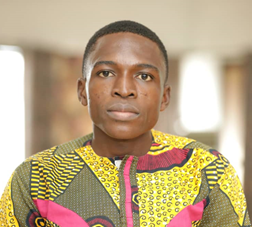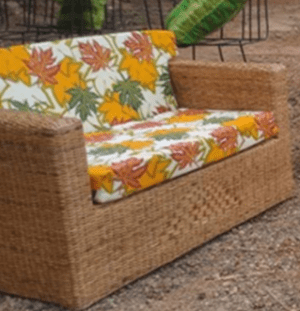- the story of KabCane Enterprise
Determination is indeed a wake-up call to the human will. Having gone through phases of an ailment and even facing difficulties in financing his tertiary education, this young entrepreneur called Kabah – the brain behind KabCane Enterprise – never gave up on his dreams and was instead determined to put his craft to work by introducing a fresh face into the local furniture industry to put himself through school. Read on as he spends some time talking to the B&FT’s Inspiring Start-ups
Kabah Atawoge is a final-year student at the Ghana Institute of Journalism (GIJ). He is a native of Paga-Kajelo in the Kassena-Nankana West district of the Upper East Region. He is a product of St. Oscar’s Primary and Junior High School and the Bolgatanga Senior High School, where he completed in 2015.
In 2011 he was diagnosed with curvature of the spine, medically called Kyphoscoliosis; hence, for two years, he had to put his schooling on hold to focus on his health before proceeding to university.
“My condition had deteriorated, inhibiting my mobility. So, for two years, I tried any treatment that was recommended and regained some strength in my muscles, and could move again with the help of a cane,” he recounted.
His journey into KabCane
Kabah took advantage of the time by learning how to make furniture and baskets from cane, rattan and bamboo.
Though he wished to become an auto mechanic, Kabah gave way to rather becoming a journalist because he said he was appalled by how children with special needs and persons with disabilities were excluded from the decision-making table. So, he applied and fortunately was admitted to GIJ.
“My days at GIJ will forever be the most challenging and defining period of my life – not because of discrimination but financial hardship. There was a particular semester when I attended lectures for just eight days. Yes, out of the four-month-long semester, due to my inability to afford transportation,” he narrated.
This ordeal didn’t break him. It rather charged him to decide in 2019 to start a business with his handcrafting furniture skills to sustain him throughout school.
“I decided to partner with a friend, Felix Fameyeh, to establish KabCane Enterprise – a startup using cane, rattan and bamboo to produce furniture and other household items such as baskets, bags, stands and any other things,” he said.
He added that partnering with his friend was key to the business, because the items produced needed to be displayed at vantage points to attract customers. And his friend, being a night security guard, was always present at the shop while he had time to attend lectures.
The business has since been his main source of income for paying his fees and supporting himself, even though his friend has moved on to other things.
KabCane Enterprise
KabCane Enterprise produces stylish furniture for offices, homes and outdoor event centres. They are also masters in creating baskets, wig-stands, bags and lamp-shades.
To stand out and also contribute to mitigating climate change impact, KabCane uses recycled mattresses that could have ended up on the shores of beaches and at dumps as cushions for the furniture.
Vision
In the next five years, KabCane Enterprise wants to become the leading manufacturer of cane, rattan and bamboo products. Also, he wants to be the leading advocate for these products as substitutes for furniture and items whose production processes are harmful to the environment.
“To eliminate the rip-off by middlemen in the supply chain, our website will soon be launched to sell directly to customers,” he added.
Challenges
Financial challenges are a major headache to him.
“It is extremely challenging getting access to funds for scaling up – and that is why most startups do not go beyond the establishment stage. Banks and other financial institutions are not ready to make funds available to us because it’s considered too risky to do so,” he said.
Access to raw materials is also another challenge.
“We get raw materials from the Western Region, and according to the women who bring them here in Accra for us to buy, some forestry officials seize their items on the way and demand monies from them. These officials claim they are carrying illegal goods, so they seize them and demand money from,” he bemoaned.
He added that given the current economic crisis, sales have also dwindled.
How government can support start-ups
For him, one essential thing government must do to help is make available funding for young entrepreneurs, especially those that are disabled.
He said mentorship and financial education for young entrepreneurs, particularly those in the local furniture industry, is crucial – especially when most of them don’t have any educational training on financial literacy.
Advice for prospective entrepreneurs
“Before you venture into any business, talk to people already in the industry. This will give you an idea of what is ahead of you. Also, research and have the basic information and knowledge. I say this because entrepreneurship is not as easy as it is perceived,” he advised.
Contact details
Call/WhatsApp: 020 645 1105












